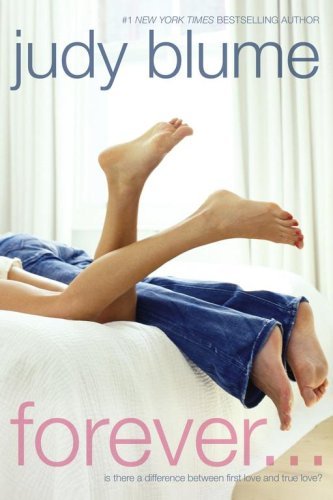
NCAC, along with members of the Coalition, sent a letter to the Sugarloaf School in Summerland Key, FL, regarding the recent request to remove Judy Blume’s book, Forever, from its library. The parents of one student apparently object to the sexual content in the book.
Theresa Axford
Principal, Sugarloaf School
255 Crane Blvd.
Summerland Key, FL 33042
February 17, 2010
Dear Ms. Axford:
We write regarding the recent request to remove Judy Blume’s book, Forever, from the Sugarloaf School library. The parents of one student apparently object to the sexual content in the book, which they claim contains “a distorted view of sex, promiscuity, and is usurping parental control.”
No parent has the right “to tell a public school what his or her child will and will not be taught.” Leebaert v. Harrington, 332 F.3d 134, 141 (2d Cir. 2003). Nor do parents have “a fundamental right generally to direct how a public school teaches their child.” Blau v. Fort Thomas Public School District, et al, 401 F.3d 381, 395 (6th Cir. 2005). “[T]he mere fact that a child is exposed on occasion in public school to a concept offensive to a parent’s religious belief does not inhibit the parent from instructing the child differently. A parent whose ‘child is exposed to sensitive topics or information at school remains free to discuss these matters and to place them in the family’s moral or religious context, or to supplement the information with more appropriate materials.’” Parker v. Hurley, 514 F. 3d 87, 105 (1st Cir. 2008) (citation omitted).
These principles apply with special force in the library. Schools "may not remove books from library shelves simply because they dislike the ideas contained in those books…. " Board of Education v. Pico, 457 U.S. 853, 872 (1982). The school library, unlike the classroom, has "a special role…as a place where students may freely and voluntarily explore diverse topics." Campbell v. St. Tammany Parish School Board, 64 F. 3d 184, 190 (5th Cir. 1995). Thus, in Pico, the Court rejected the claim that library selections should transmit "community values." Unlike "the compulsory environment of the classroom," in the library, the "regime of voluntary inquiry" controls. 457 U.S. at 869.
Forever is hardly the one-dimensional book the complaint claims. The story takes place when the protagonist is 17 and 18 years old — in other words, just as she is becoming an adult. It explores some of the most pressing issues for adolescents: dealing with romance and sexuality, peer pressure, death, responsibility, maturity. The book contains messages that many parents would consider valuable: the teenagers speak openly to one another about their relationship; they act in a sexually responsible way; the female character is strong and makes her own decisions; her parents are involved and try to help her make constructive decisions; the negative consequences of promiscuity are displayed. In short, the novel tells a realistic story with complex figures and themes that are important to adolescents who are beginning to think about approaching adulthood.
Some parents prefer to keep their children from reading about sex; others may strongly disapprove of teen sexual activity and still not censor their children’s reading. Some parents appreciate books like Forever, because they can create opportunities for adults and teens to talk about sensitive topics. Even if the novel’s themes are too mature for some students, they will be meaningful to others. No book is right for everyone, and the role of the library is to allow students to make choices according to their own interests, experiences, and family values. No one has to read something just because it’s on the library shelf.
In practice, censorship invites multiple, sometimes conflicting demands on school officials to exclude other material that other parents find objectionable. To avoid such difficulties, and to provide students with the breadth of information and skills necessary to succeed in a diverse society, educators are well-advised to defend the rights of students to access the broadest range of knowledge. School officials have much wider discretion to include material that has pedagogical value than to exclude it, and their decisions to do so have rarely, if ever, been rejected in the courts. See Monteiro v. Tempe Union High School District (9th Cir. 1998).
We urge you to retain Forever in the library and stand by the principle that is so essential to education: the right to read, inquire, question, and think for ourselves.
Please do not hesitate to call on us if we can be of further assistance.
Sincerely,
Joan Bertin, Executive Director, National Coalition Against Censorship.
Millie Davis, Division Director, Communications and Affiliate Services, National Council of Teachers of English
Chris Finan, President, American Booksellers Foundation for Free Expression
Judith Platt, Director, Freedom to Read and Communications/Public Affairs, Association of American Publishers
Larry Siems, Director, Freedom to Write and International Programs, PEN American Center


